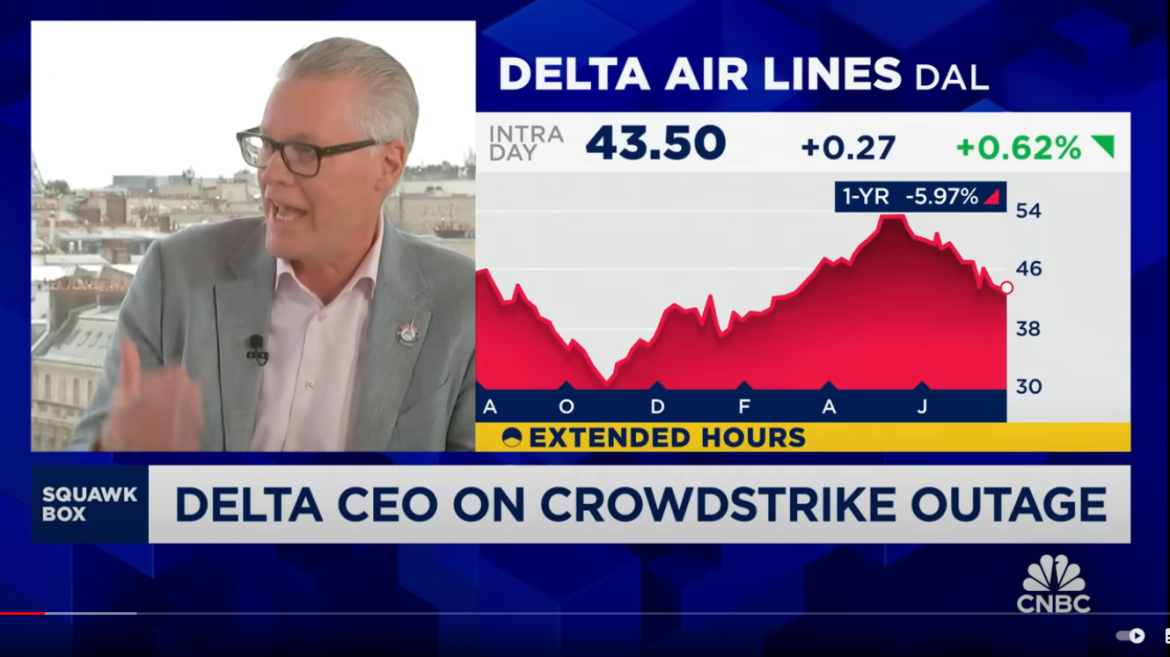Delta Airlines CEO Ed Bastian has publicly criticized cybersecurity firm CrowdStrike and technology giant Microsoft for a software failure that caused a global service meltdown earlier this month. Speaking on CNBC, Bastian revealed that the five-day outage, which began on July 19th, resulted in a staggering $500 million loss for the airline.
The disruption affected Delta’s operations worldwide, leading to significant delays, cancellations, and inconvenience for thousands of passengers. Bastian expressed frustration with the response from CrowdStrike and Microsoft, stating, “They haven’t offered us anything.” He emphasized the critical nature of Delta’s 24/7 operations and the unacceptable nature of the software issues, adding, “You can’t come into a mission-critical 24-seven operation and tell us we have a bug. It doesn’t work.”
Based in Atlanta, Delta Airlines has reported hundreds of millions of dollars in losses due to the data outage. The incident not only impacted the airline’s revenue but also damaged its reputation and disrupted the travel plans of countless passengers. The financial repercussions are expected to have a lasting impact on the airline’s quarterly earnings and overall financial health.
Bastian squarely placed the blame on CrowdStrike and Microsoft, highlighting the critical role of their software in maintaining Delta’s operational integrity. The CEO’s comments underscore the growing dependence of major corporations on reliable cybersecurity and technology infrastructure. The failure of such systems can have far-reaching consequences, as demonstrated by the recent meltdown.
As of now, neither CrowdStrike nor Microsoft has issued a detailed public response to Bastian’s allegations. The companies are expected to address the issue and provide their perspective on the events that led to the service disruption. Both firms are renowned for their cybersecurity and software solutions, and this incident raises questions about the robustness and reliability of their products in high-stakes environments.
This incident highlights the vulnerabilities and risks associated with digital and cyber dependencies in the aviation industry and beyond. It also underscores the importance of rigorous testing, rapid response capabilities, and clear communication channels between service providers and their clients. As Delta seeks to recover from the financial and operational impact of the outage, the airline is likely to reassess its cybersecurity and software strategies to prevent future disruptions.
Delta Airlines is now focused on mitigating the damage and restoring customer confidence. The airline has initiated an internal review to understand the failure’s root causes and to implement measures that will bolster its resilience against future technological disruptions.



